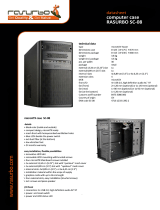
Safety Precautions
xii
1
2
3
4
5
6
CAUTION
About UV light About hot parts
• A little UV light leaks from the LED UV unit. UV
light applied to your skin might cause
inflammation and/or skin cancer.Though weak
UV light might cause no inflammation, repeated
exposure to it may lead to chronic disorders.
Avoid applying UV light to your skin and eyes.
• The LED UV unit and the Post Cure Unit
become very hot. When carrying out
maintenance, wait until the temperature has
been sufficiently lowered after the lamp is turned
OFF.
• Do not touch the parts with the caution label
placed and their vicinity, or burn injury may
occur.
• Possible damage to your eyes due to ultraviolet
is acute disorder (feeling like something is in
your eye, pain and flow of tears) and chronic
disorder (cataract etc.). When using this device,
take protective measures such as gloves, long-
sleeve cloth, light-resistant mask, attached light-
resistant glasses, etc.
• When it is unavoidable to touch hot parts, be
sure to wear heat-insulating gloves to protect
your hands.
Notes on LED UV unit About cleaning
• When handling the LED UV or the silica glass on
the bottom of the irradiation device, be sure to
wear the gloves attached and never touch them
with bare hands, or the UV ink curing level is
significantly lowered. If the LED UV or silica
glass is contaminated, wipe it with clean gauze
moistened with alcohol.(Do not use alcohol for
cleaning the exterior cover, or the paint will peel
off.)
• After using the unit long time, foreign materials
and dust may be gathered on the conductive
and insulating parts, causing electric
leakage.Periodically clean such parts.
• For cleaning, do not use compressed air
because it scatters foreign materials and dust,
which may cause malfunctions when put inside
the conductive parts.Be sure to use vacuum
cleaner for cleaning of foreign materials and
dust.
• Do not use the unit in a place where there is a
possibility of being wet, or electrical leakage may
occur.
• Electrical leakage, if it should occur, may lead to
electrical shock of personnel or fire.
• In order to prevent accidents from occurring, be
sure to carry out periodic inspections and
replacement of timechange components.
• Never use those UV devices other than those
recommended by Mimaki. We would take no
responsibility for any troubles caused through
the use of a UV devices not recommended by
Mimaki.
About firing and smoking
• Touching hot parts such as the LED UV unit with combustible materials may cause firing and/or smoking.
Leaving combustible materials under the UV LED unit for a couple minutes may also cause firing and/or
smoking.
• After the unit is used long time, foreign materials or dust gathered on the stabilizer or other parts may cause
electrical leakage or insulation deterioration may cause firing and/or smoking.Periodically clean the parts and
measure the insulation resistance, replacing deteriorated parts, if any.
• After the unit is used long time, screws, etc. on the conductive parts may be loosened, causing firing and/or
smoking.Periodically tighten such screws.
• Because this unit is not of explosion proof type,do not use it in an ambience with hazardous materials, or a
possibility of explosion may arise.
• If abnormalities of the unit such as a strange odor, a smoking or a spark burn are found, turn the power off and
call Mimaki immediately.
Handling of the power cable
• Connect to a socket-outlet with determinate polarity.
• For Inlet, be sure to supply power from the outlet of the same voltage.
• For PLUGGABLE EQUIPMENT, the socket-outlet shall be installed near the equipment and shall be easily
accessible.
• Unplug the cord from the wall outlet and remove dust from the power plug periodically, at least once a year.
Failure to do so may result in fire or electric shocks.
• Do not use the machine unless it is connected to a power supply that satisfies the displayed voltage condition.
• Check the voltage of the wall outlet and the capacity of the circuit breaker before you plug the
• power cords. Plug each power cord to different outlet that has independent circuit breaker. If you
• plug more than one power cord to wall outlets that share the same circuit breaker, the power may be cut off by
the breaker.





















